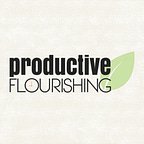Today’s guest, Debbie Reber, is a New York Times best-selling author, podcaster, and speaker. She joins Charlie today to discuss how she made the transition from working in television to becoming a best-selling author, and how the birth of her neurologically-different son altered her body of work and how she got it done. While her work is geared toward parents of neuro-diverse children, this is a great episode for everyone because it shows how sticking with your work and listening to where it’s taking you can blossom into new and unexpected opportunities.
Key Takeaways:
[2:23] - Debbie started her career in TV, then she started writing, and her writing shifted. She did video production for international relief organizations, and moved into kid’s TV, and eventually decided that she wanted to write a book. Throughout all of these, she was pursuing other side projects that provided a different level of personal fulfillment. Fifteen years later, she’s still writing books.
[6:12] - Debbie is finally at a point in her life where her career and her desires are woven together, and aspects of her past careers inform every aspect of her current work.
[7:53] - Her work has always sort of revolved around marginalized groups in general, though she is pulled more in the direction of kids and teens. She worked in kid’s media, has volunteered and focused on working with underprivileged teen girls, and of course, is mom to her son Asher.
[11:00] - Debbie’s son Asher is thirteen now, and what she calls “differently wired.” He has diagnoses of ADHD, Asperger’s, and is also profoundly gifted. As her only child, Asher gets a lot of her attention. As he was growing up, routine things took longer than normal, and Debbie had to learn how to be in work mode but drop things at a moment’s notice to attend to her son. There was a struggle prioritizing her work time with time for her son and also her own self-care. During this time though (2002-2016), she published 9 or 10 books, so she remained very productive during these years.
[16:42] - A lot of creative people get to the point where they wait for a period of time where things calm down and say that’s when they’ll be able to do their work, so they don’t do it in the current moment. There can still be some great work done in the moments of chaos. For Debbie, she refused to let her personal work be impacted by the other things going on in her life.
[19:05] - A lot of creative people have some sort of mindfulnesses practice, as well as an athletic or discipline practice. Being a runner is a huge part of who Debbie is, and it keeps her emotionally and mentally healthy. Her unapologetic nature about running transfers to other aspects of her life, where she sets goals and works for them, no turning back. For listeners, find a discipline that you can get into. The benefit will be great!
[21:40] - Debbie shares about the transition between sending Asher to school and the decision to homeschool him. Schools never seemed to be a good fit, and when Debbie’s family had an opportunity to move overseas, they made the decision to start homeschooling. She speaks about how it was scary, but she knew it was the right thing to do.
[25:35] - Debbie started the Tilt Parenting website and podcast shortly after their move overseas. While raising Asher, she had trouble accessing information about how to navigate the journey of raising her son. She knew that she wanted to bring that information to other people eventually, and things fell into place for her to launch her Tilt platform, rather than waiting until the book was finished.
[29:59] - It didn’t occur to Debbie to start Tilt earlier because she wasn’t ready to give up her work with teens. When they made the move to Amsterdam, it helped her to look at things in a different light and she made the space for a new body of work. She had to make a conscious choice to sort of let the work with teens go and dive into the new work for differently wired kids that was very personal to her.
[36:18] - The idea for Tilt came from a moment when Debbie was at the Jersey Shore with her family and they rode the Tilt-A-Whirl. The name captures the idea of holding on and not necessarily knowing where things are going, as well as the idea that we need to tilt our perspective and allow differently wired children to tilt the future.
[37:45] - At the very least, 1 in 5 kids in the US are differently wired. That’s a lot of kids, and even more parents. For the number of people affected, the resources really aren’t there for people to access. Often in the school system, these kids are seen as inconveniences because they require different accommodations.
[41:05] - Debbie talks about how parents of differently wired kids are sometimes divided into different groups and compared against each other, which sort of forces them to be kept silent. One of the things she wanted to encourage with Tilt is to unite parents to advocate for the kids.
[43:15] - Some of the disparities in our education system is that there are a lot of kids with different needs and capabilities, and the standard bell curve doesn’t really work for them (or many kids, at that). What makes it tricky for differently wired kids is that how they are is seen as a behavioral challenge, when really it’s how they cope and move through the world.
[48:36] - Alternative education (like homeschooling) is not always an option for differently wired kids. It is important to figure out ways to work within the system and help both kids and parents learn how to advocate for their education. Debbie encourages parents to adopt a questioning mindset to explore experiences and create intention in behaviors.
[53:40] - Debbie talks about the fluency map she created for her and Asher, and how it helps the parents and child become fluent in each other’s language. If parents become fluent in their child’s language and are attuned to little signs, then that can foster more trust and security in the way they relate to each other. It may also be helpful for the parents to share their language with their kids.
[58:10] - Tilt is coming out June 2018, but has been finished since last July. In this book in particular, since the book was so personal and important, the process was more difficult than some of her other books. Since it’s been finished, Debbie has been focusing on her podcast and growing the audience of people they can reach.
[1:01:00] - All creators know that when you finally finish whatever project you’re working on, you’re ready to show the work off. It can be hard when you have to wait to share the finished product. It’s a normal thing that happens, but it’s important to find a way to get back into the fight while you’re waiting.
[1:06:40] - Debbie’s challenge for listeners is to recognize and start noticing our own implicit biases we might have against neuro-diverse people. Be aware of one point judgement starting to come in and where your default thoughts go, and invite curiosity on how you might approach the situation in a way that will begin to accept and embrace these people.
Mentioned in This Episode:












